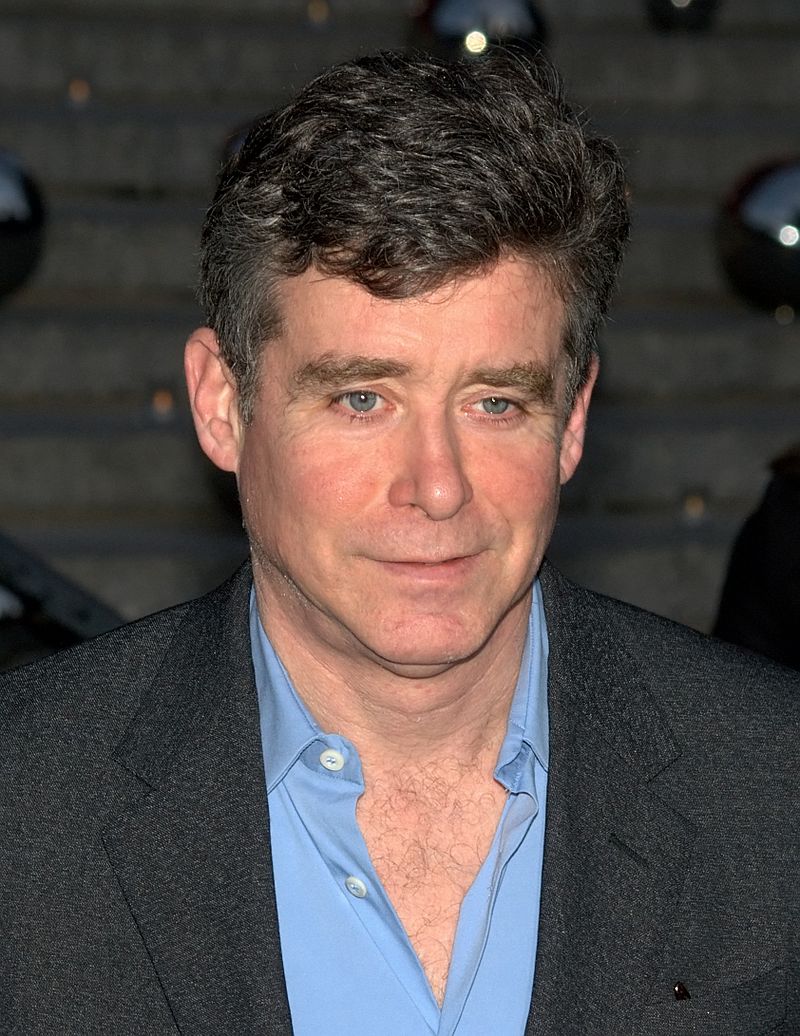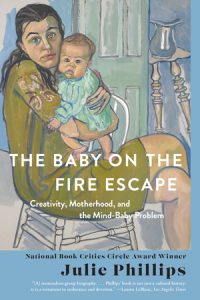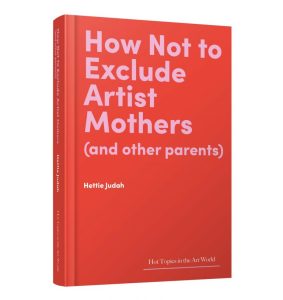"In a way you do have to turn off your higher faculties to engage with a baby—who has intense use for your creativity and resourcefulness and problem-solving skills, but who is not interested in what interests you intellectually."
—Julie Phillips (Milk Art Journal)

Jay McInerney: Brightness in a Marriage
Since his first novel ‘Bright Lights, Big City’ dropped onto the literary scene in 1984, Jay McInerney (b.1955) has been one of the strongest voices heralding the zeitgeist of New York City. He has just released his eighth novel, ‘Bright, Precious Days’ (Knopf), the third book following the life and marriage of Russell and Corrine Calloway. McInerney will speak at the John Adams Institute on Sept. 13, 2016.
Bright, Precious Days opens with a scene of Russell, middle-aged and a publishing has-been, trying to be seduced by a much younger woman. Is there still sex in publishing?
God, I hope so! (laughs) I think fortunately there’s still sex everywhere, even in publishing. Although, some people don’t think of it as a very sexy business. In this case, he fails to actually follow through, but there’s certainly a lot of sex in the book.
That’s an interesting conflict, given the fact that Russell and a friend of his have a conversation about how greatly sex has been deprioritized, at this stage in their lives.
No, you’re mistaking the context of marriage for the larger world. There’s a lot of talk in the book about the dying passion within the confines of a long-term marriage, but there’s still a lot of sex in the book. Many of these couples have been married a long time and they’re looking outside the marriage.
This is your third book on the marriage of these characters (‘Brightness Falls’, 1992 and ‘The Good Life’, 2006). Will you write about them again?
It’s funny that both New York Times reviewers (one, two) exhorted me to write another one. I was gratified to see that they wanted more.
I haven’t made up my mind at this moment. But there is something neat about having written a trilogy. I feel like I might visit these characters one more time, but I certainly don’t want to follow them into decrepitude. Yes, they turn fifty in this novel. They’re aging at the same rate as the rest of us. I’d like to leave them with some shred of glamour and dignity. If I do, it would only be one more time.
What is it that has attracted you for so long to these characters?
Well, when I wrote the first book, ‘Brightness Falls’, I was interested in writing a broad social panoramic novel about contemporary New York. The image that I started with was something I saw on Fifth Avenue one day: I saw a homeless man standing next to a billionaire named Ron Perelman, whom I recognized because he’d been on the cover of some magazine. And I thought, I’d love to write a book that had both of those characters in it: those are the extremes. But to hold the novel together, I felt like I needed an “every-man” or “every-woman”, characters that are more representative of the middle of the social spectrum and the economic spectrum.
I had recently written a short story, in which I introduced this married couple, Russell and Corrine Calloway. They were a model couple: they were good looking and smart, and they got married shortly after they both graduated from Brown University. They were the first in their group to get married, they had cocktail parties, people admired them… I think we all know some couple that seems exemplary. On the other hand, they’re not so good looking, or so smart, or so wealthy – in a way, they’re just like everybody else, except a little more so. I ended up putting their marriage at the center of this novel, which became ‘Brightness Falls’.
I was fascinated by examining the idea of monogamy, and by following their path through the city. But when I created them, I was already on my second marriage, so, for me, Russell was ‘the road not taken’. If I hadn’t been a novelist, I might’ve been an editor, and if I’d stayed married… I wanted to imagine that alter-ego for myself in an alternate life, and I guess that’s what I’ve been doing for three books now.
To what extent do you integrate your own life into your fiction?
Well, these are very definitely not me. My life diverged very much from theirs when I published ‘Bright Lights, Big City’. When I said I wanted a kind of “everyman” and “everywoman” – then I don’t count. There’s nothing representative about my life. ‘Bright Lights’ was wildly successful and it made me a public figure, and kind of turned my life upside down. It also made me a full-time novelist, a pretty unusual profession. So I abandoned the idea of writing about myself after that book.
Russell and Corrine are my way of continuing to explore New York and the life that I live without writing about myself. Of course my experience is reflected in all these books: everything that I see and hear and experience in New York is filtered into these novels.
What is the New York experience like at the moment?
The history of New York is in some ways cyclical. We keep imagining that the economy will just keep going up, and that life will keep getting better… but all of these books are interrupted by some major crisis that deeply affects the lives of the citizens of New York. In the first book, it’s the stock market crash of ’87; in the second book, it’s September 11, 2001 and the attacks on the World Trade Center; in the third book, it’s the financial crisis of 2008, which catches everybody by surprise and has a deep impact on the lives of many of these characters.
Right now, I think we’re in a mode of moving forward as if nothing bad could ever happen, but it seems to me that New York is probably ripe for another shock, another surprise. I mean, who knows, it could just be the horror of waking up in November to find that Donald Trump has been elected president, although I doubt it. I certainly hope not.
Inevitably, there will be another reckoning sometime in the near future. But for the moment, New York in is a very optimistic mode, and people here don’t reflect on the past that much. Everyone’s focused on tomorrow. The past is not much more than: “Where did I go to dinner last night?” Nobody seems to remember the financial crisis or 9/11 until they are forced to.
Tell us about the recurring role that “brightness” plays in your writing.
My characters are attracted to New York like moths to the flame. It metaphorically refers to the almost magnetic appeal of the city. On a literal level, the lights of the city are very bright, but I just love the word. It reflects what I like in people, and what I like in my cities. I never imagined that I would be using it for what is now the third time. It seems to express a lot of what I am attracted to and what I care for.
Is it what drew you to New York?
So many things did. It’s the most interesting place in America. If you’re really ambitious and you’re really bright, chances are you’re going to want to come here. This is the center of so many things – the publishing world, the art world, the theater, advertising, finance…
I have two brothers, and my father always said to us, “You have to go to New York.” You could decide it’s not for you, or you can decide that you do love it and you want to live there, but either way, you have to gauge it, because otherwise you’ll always wonder and you’ll always have an inferiority complex. Both of my brothers came here and left, and I came here and stayed. To me, it just feels like the center of the world.
I wasn’t born here, but to me, that’s irrelevant. I think Europeans put more stock by where they were born. In America, we believe we can choose our fates and our identities. In my case, when I was 21 years old, I came here, and I thought: “This is it. This is where I belong.”
How do you balance the attraction to the brightness and producing the work, which requires a bit of darkness?
The darkness finds you, regardless what you do. It’s not something you can escape. But there’s a lot of distractions in New York, and they can help you to avoid some of the darker questions for a while. Ultimately, though, like Russell and Corinne, we all have to deal with the deepest and most difficult questions in life – no matter how nice our wardrobe is, or no matter how good our education is, or no matter how packed our social schedule is. The questions of taking care of your children, questions of aging and mortality – these are the same in New York ultimately as they are elsewhere.
Will you continue to reflect on marriage in your writing?
Well, marriage is a continuing enigma and dilemma for most people – certainly for these characters! There may be such thing as a “perfect marriage,” but if so, I’m not sure it would be very interesting to write about. What interests me about these two is not that they have been perfect or faithful, but they have survived the storms, and the infidelities and the crises. I’m either an expert at monogamy or not, because I’ve been married four times, but I’m very intrigued by these people who have managed to make it work.
What are you working on at the moment?
I’ve been working on some short stories, which is usually what I do after I finish a novel. With luck one of them may become a novel, which is often what happens. And I have my wine column that I write every month, for the magazine Town & Country.
Can you give us the perfect wine pairing for ‘Bright, Precious Days?’
I’m afraid it’s way too complicated a book for one wine pairing! There are so many shades to this book – there’s satire, there’s romance, there’s documentary realism. All I can say is, champagne goes with everything.
This interview with Jay McInerney was published with John Adams Institute.



